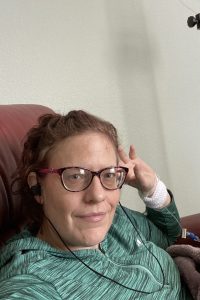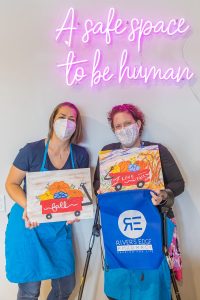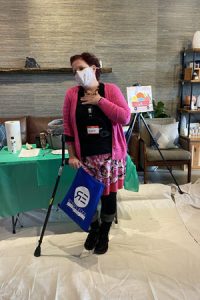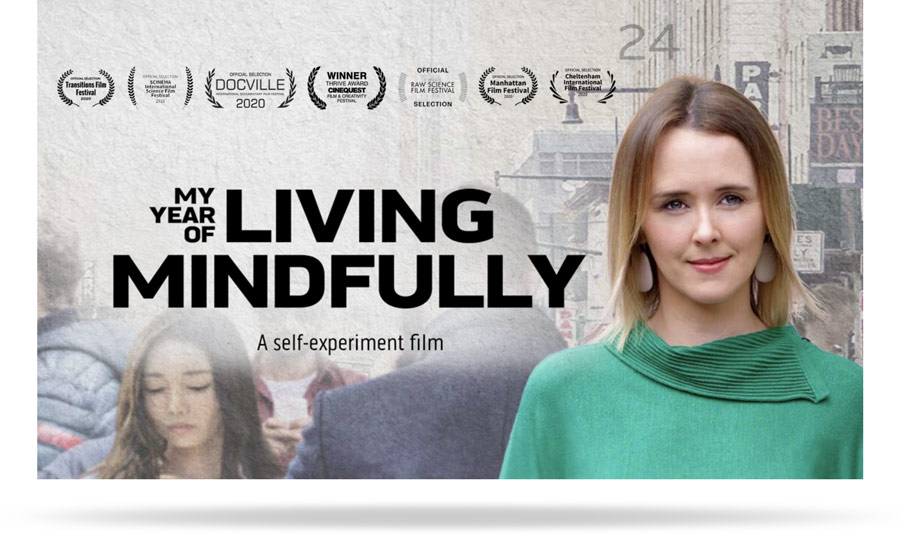Mindfulness And What it Means in the Context of Chronic Illness
When faced with being given a chronic or life-changing health diagnosis, it can be a scary and confusing time. More than likely, you might have heard a medical professional suggest to “meditate” or use “mindfulness” to manage your condition.
Unfortunately, those words may not come with any clear recommendations or guidance. Depending on what you may know about mindfulness or meditation as a patient, it could bring up images of people sitting still, breathing, and relaxing. One might thing of yoga, deep breathing, or meditation as the only mindfulness activities. It couldn’t be further from the truth.
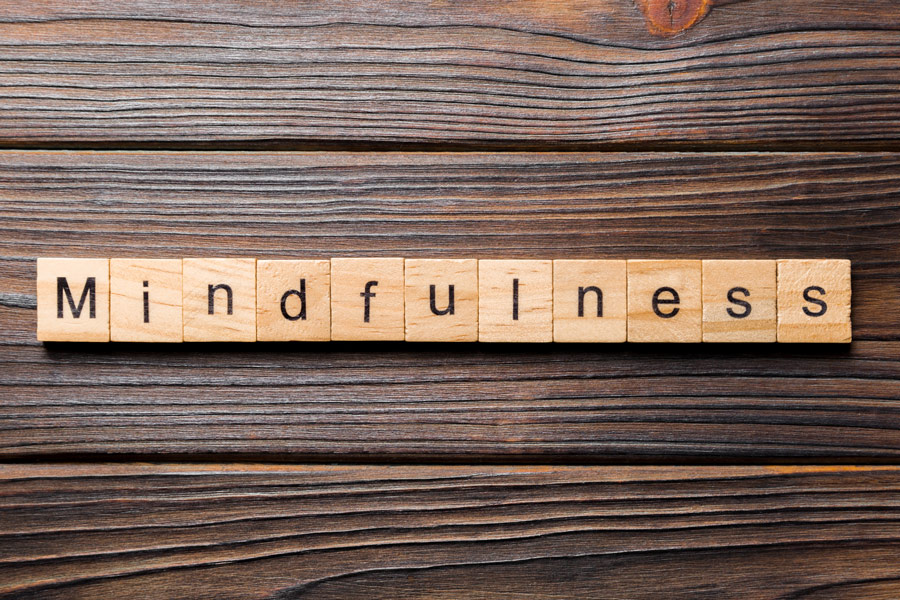

I once asked a patient what mindfulness meant to her and asked for examples of what she did mindfully. She had a long list that included listening to music, getting fresh air, doing crafts, spending time with family, etc. The act of being mindful is noticing your surroundings versus letting them sort of whirl around you, and not allowing you to stop to “smell the roses”.
Shannon Harvey, a health journalist, found herself overwhelmed by an incurable autoimmune disease that resulted in increased insomnia and stress. Her autoimmune disease was flaring causing increased fatigue and physical pain. In her own words, she was searching for “the equivalent of a 30-minute workout for her mental wellbeing”. She found there was nothing. She had an interest in being a better role model for her children who are growing up in an era where depression and anxiety are more rampant among young people.
Shannon Harvey, a health journalist, found herself overwhelmed by an incurable autoimmune disease that resulted in increased insomnia and stress. Her autoimmune disease was flaring causing increased fatigue and physical pain. In her own words, she was searching for “the equivalent of a 30-minute workout for her mental wellbeing”. She found there was nothing. She had an interest in being a better role model for her children who are growing up in an era where depression and anxiety are more rampant among young people.
Shannon teamed up with scientists to create a documentary, and recently published a book with the same title called, “My Year of Living Mindfully”. Together, they measured different matrices of her health where the only part she changed in her daily routine was committing 30 minutes of meditation with the help of a mobile app. She didn’t change her exercise routine or diet. Instead, she simply went on the path of daily mindfulness.
She doesn’t give away the ending on her website, so I won’t either. But Shannon found that mindfulness wasn’t about relaxation. It didn’t make her happier, but she did end up meditating a lot longer than 365 days.
Meeting people, especially people who manage chronic illness or pain, who regularly engage in mindfulness find that meditation distracts them. It tends to provide a break from the everyday minutia of managing symptoms, pain, medical appointments, bills, and everything a chronically ill patient does in addition to “normal life things” – family, jobs, school, friends, and other daily responsibilities.
During a hospitalization a few years ago, a doctor said to me, “well you just need to meditate”. At that point, I was diving into my own mindfulness practice to help my own diseases. However, I still didn’t understand how mindfulness wasn’t going to cure me or make my symptoms go away. What mindfulness does for me is give me a moment to pause.
With the changing laws involving opioid usage and how pain is managed for illnesses, it’s important to have some alternatives in your coping toolkit. It could feel dismissive to be told to “meditate”, as it doesn’t feel like a quick fix. There’s not much about chronic illness that can be fixed quickly. It becomes a delicate art of working with your doctor to find the best regimen to get back to feeling your best.

Do you have questions about using different types of mindfulness to help with your symptoms? First, ask your treating doctor for resources. Many mental health professionals are trained in some type of mindfulness practices and should give you directions. Do a search for local therapists or psychologists who specialize in mindfulness. This could be as easy as calling your insurance company’s mental health benefits line. You could also visit the Psychology Today website (www.PsychologyToday.com) to get a better scope of professional services out there.
Many communities offer free meditation or mindfulness groups through yoga studios, therapy practices, churches, or anywhere you could think of. Many are virtual that you could join from a phone, tablet, or computer. Meditation apps are plentiful and occasionally free.
Despite mentioning meditation frequently within this post, I want to emphasize that mindfulness is a very broad concept. Taking a moment to look up and focus on your surroundings – colors, textures, scents – can take you from having difficult symptoms and pain to a welcomed moment of distraction.
For a couple years now, I have been specifically helping chronic pain patients build mindfulness exercises into their daily lives. The ones who stick with it have an incredible sense of wellbeing.
Meditation and mindfulness are common concepts within western medicine today. So live mindfully and well. – Lizzie
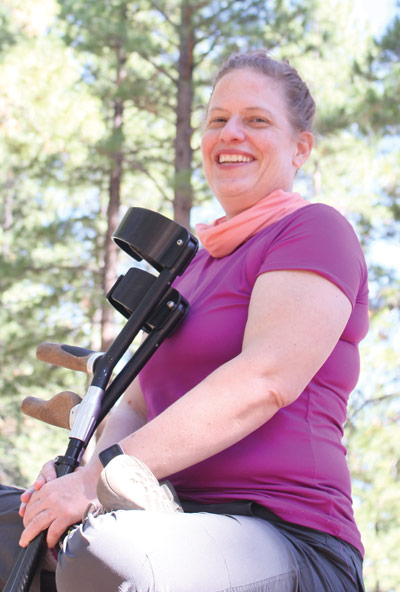
Jennifer “Lizzie” MacDonald leads the PATH – Patient Healthcare and Wellness Program at River’s Edge Pharmacy. As a patient with multiple chronic conditions, Lizzie has first-hand experience with navigating the complex health system.
Throughout her journey, she has become impassioned with sharing her knowledge and serving as an ambassador for patient independence, wellness, and recovery. This not only lead to patients’ relief and comfort, it has provided an opportunity for doctors to utilize a patient advocate for more effective and time-saving care in their practices.
Lizzie is an outspoken supporter of creating community through support groups as well as through the invaluable connection of one-on-one interactions for patients who are managing chronic/complex illnesses. Through her efforts, she has emboldened patients to share their ideas, goals, and triumphs, as well as live life to the fullest, regardless of their condition(s).
Lizzie is also a contributing author to River’s Edge Pharmacy’s News and Articles


